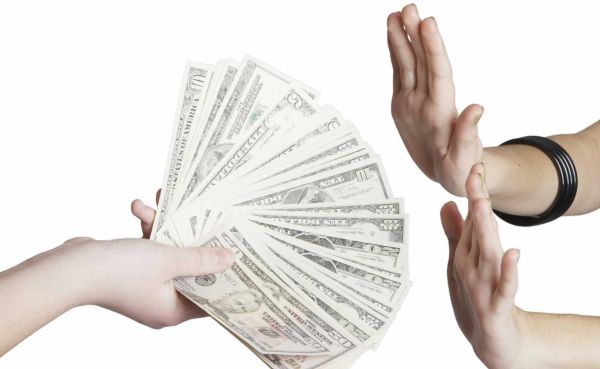New joint polling from the Associated Press and National Opinion Research Center finds that a majority of Americans oppose tax-financed campaign programs, preferring candidates to raise money through voluntary donations from supporters. More than twice as many people say presidential campaigns should raise money through donations (56%) as say government should pick up the tab (26%). According to the results, just 18% of Republicans and 36% of Democrats favored a system of tax-financed campaigns generally.
These results are surely disappointing to “reformers,” who have long claimed to speak on the public’s behalf when calling for government control of campaign funding, and who continue to promote tax-financing as a model for states and the nation to adopt. In reality, as the AP phrases it, “Americans just don’t think federal financing is very effective at reducing the impact of money in politics.”
But perhaps the most damning result for “reformers” is this one, though it may not be obvious as to why at first: “The vast majority [of Americans] don’t see themselves sending money to a campaign. Just 9 percent say it’s very likely they’ll donate directly to a candidate, 4 percent think they’ll donate to a party and 2 percent think they’ll donate to a political action committee.”
If you’ve been listening to Larry Lessig lately – and you would be forgiven for tuning him out – you’ll know that he has grown fond of comparing modern campaigns to the “white primary” of the Jim Crow era. Here’s an example, from Lessig’s discussion with CNN’s Fareed Zakaria in mid-August:
“Basically, right now, members of Congress and candidates of Congress and candidates for the president are spending all of their time raising money from a tiny, tiny fraction of us. The New York Times had an article last week finding 400 families have contributed half of the money that has gone into the presidential election cycle so far. We’ve run – you know, in the South, they used to run the white primary, where only whites were allowed to vote. We’ve now created the green primary, where only the funders get to vote and they vote on who will have the money necessary to run their campaigns.”
There’s only so much time in the day, so we’ll leave aside the absurdity and offensiveness of comparing the horrors of the Jim Crow era to the lawful exercise of First Amendment rights to contribute to candidates. Lessig’s argument here – and commonly repeated elsewhere – is that elections are not truly free when a small portion of people have outsized influence on the selection and nomination of candidates. He and other proponents of tax-financed campaign programs believe that government can solve this problem by making everyone a “funder,” that is, by using tax dollars to turn small contributions into large contributions, and by limiting the size of contributions candidates may accept.
Not so fast, says the AP-NORC poll. If only 9% of Americans are likely to donate to candidates, it doesn’t matter how equal those donations are: the vast majority of Americans still are left out of the process. There’s no way to make everyone a “funder” besides mandating it (another abhorrent idea) because most people just don’t want to be one.
This is where “reformers” so often go off the rails. The majority of Americans are not interested in trying to personally shape the choices on the ballot; they just want those choices to be half-decent. They are not interested in poring over FEC filings – the poll found that only “13 percent [of Americans] say they understand quite a bit or a great deal about how candidates get money for their campaigns”– they just want moral, upstanding candidates with a compelling message. They are not interested in government working through a mountain of campaign finance regulations; they just want government to work.
Too frequently, public outrage is mistaken as support for sweeping reforms and additional regulations that hinder First Amendment rights. As the AP-NORC poll shows, when pollsters ask about specific proposals instead of the status quo, Americans’ support for freedom of speech and association starts to shine through. Money in politics isn’t a popular subject with many citizens, but Americans clearly prefer that candidates ask donors – not the government – to support their campaigns.














